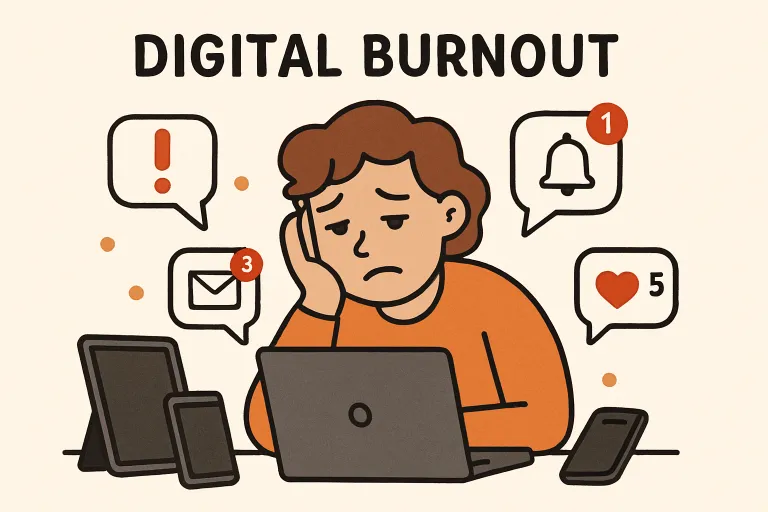Coomer su: Meaning, Meme Origins, Website Risks, and Legal Issues

Coomer su: Meaning, Website Risks, Safety, and Legal Facts
The internet is full of memes, websites, and slang terms that sometimes overlap in unexpected ways. One such example is Coomer su—a phrase that can mean very different things depending on the context. On one hand, it’s tied to the cultural meme of the “Coomer,” which humorously depicts overconsumption of adult content. On the other hand, it refers to websites—often using the .su domain—that host or mirror subscription-based adult material without the consent of creators.
Understanding both sides of Coomer su is important. While the meme is mostly harmless satire, the websites raise legal, ethical, and cybersecurity risks for both users and creators.
This article explores the origins of the Coomer meme, the nature of Coomer su websites, their risks, and how to navigate this topic safely.
What Does Coomer su Mean?
Coomer su has two main interpretations:
- Cultural Meme – “Coomer” represents an internet stereotype of someone addicted to adult content.
- Piracy Archive – Websites, often with the .su domain, that republish adult subscription content (e.g., from OnlyFans or Fansly) without permission.
Both meanings overlap around the same theme—compulsive consumption of explicit content—but the second involves much more serious implications.
The Cultural Origin of “Coomer”
The term Coomer first appeared around 2018–2019 on internet forums like 4chan. The meme depicts a scruffy Wojak cartoon with dark circles under his eyes, representing someone who excessively consumes pornography.
- It was originally a satirical character.
- Over time, it became shorthand for discussions about unhealthy habits, addiction, and mental well-being.
- Today, the Coomer meme is often used in both humorous and critical contexts to highlight compulsive digital behavior.
So when people mention “Coomer su,” they may not always mean a website—they could be referencing the meme’s culture of overconsumption.
Coomer su as a Website Archive
When searched online, Coomer su more often refers to Coomer-style content archives. These are sites that collect and redistribute paid content from creators on platforms like OnlyFans and Fansly.
How They Work
- Acquisition – Content is scraped or uploaded by paying subscribers.
- Storage & Indexing – Files are organized by creator, category, or platform.
- Public Access – Visitors browse or download for free, often with heavy ads.
Because this bypasses creators’ payment systems, these archives are considered piracy platforms.
Connection to the .su Domain
The .su top-level domain was created for the Soviet Union in 1990. Despite the USSR’s dissolution in 1991, .su remains active and is still administered today.
Some websites choose .su because:
- It’s available and distinctive.
- It has a reputation for lighter regulation compared to .com or .net.
⚠️ However, using .su doesn’t automatically make a site illegal—it just signals that oversight may be weaker.
Cybersecurity Concerns with Coomer su
Security researchers, including Malwarebytes, have flagged coomer.su as riskware. That means the site’s structure or content can pose potential harm to visitors.
Common Risks
- Malvertising – Ads that redirect to malware or scams.
- Clickjacking – Invisible links or buttons tricking users into unintended actions.
- Malicious Downloads – Pirated files may carry trojans or spyware.
- Data Harvesting – Tracking scripts can capture browsing habits or login details.
Even if you don’t download anything, just visiting risky sites can expose your browser to harmful scripts.
Safe Browsing Practices
If you encounter a Coomer su–style site for research or investigation, follow these steps:
- ✅ Keep your operating system and browser updated.
- ✅ Use trusted antivirus software with ad and tracker blocking.
- ✅ Never log into personal accounts while visiting.
- ✅ Avoid downloading files from unverified archives.
- ✅ Use a virtual machine or separate device to isolate potential threats.
| Action | Safe Practice | Risky Practice |
|---|---|---|
| Device Setup | Updated OS, antivirus, VPN | Outdated system, no protection |
| Browsing | Separate device/VM | Using main computer |
| Downloads | Only from trusted sources | Random zip/rar files from archive sites |
Legal Aspects of Coomer su
From a legal standpoint, there’s a major difference between viewing and uploading/sharing.
- Uploading or distributing content → Almost always a copyright violation and subject to takedown or legal action.
- Viewing content → Rarely prosecuted, but downloading or redistributing it can lead to penalties.
- Terms of Service → Platforms like OnlyFans and Fansly ban such sharing; violating them may result in account suspensions or bans.
⚖️ In short: uploading is illegal, viewing is risky, and supporting creators directly is always the safest choice.
How Creators Can Protect Their Content
If your content appears on a Coomer su–style archive:
- Collect evidence – Screenshots, timestamps, and URLs.
- Submit DMCA takedowns – Contact hosting providers, registrars, and CDNs.
- Use platform tools – OnlyFans and Fansly have copyright forms.
- Request search removal – Ask Google to delist stolen content.
- Seek professional help – Legal or takedown services can manage ongoing cases.
Ethical and Mental Health Considerations
While the meme side of Coomer su often plays for laughs, it touches on real issues:
- Compulsive pornography consumption can affect mental health, relationships, and productivity.
- Archive sites undermine creators’ consent and financial stability.
- Paying for content directly respects creative labor and supports sustainable careers.
Thus, the Coomer su conversation isn’t only about piracy—it’s also about digital well-being and respect for consent.
The Wider Archive Ecosystem
Coomer-style sites are not alone. Similar platforms include:
- Kemono.party → Targets Patreon, Fanbox, and Gumroad creators.
- E-Hentai/ExHentai → Archive-focused adult content forums.
These archives often follow a cat-and-mouse cycle:
- Platforms file takedowns → Sites resurface under new domains.
- Users flock to mirrors → Creators repeat the cycle.
Understanding this pattern helps creators and users realize that Coomer su is one node in a larger piracy ecosystem.
Conclusion
Coomer su means two things: a meme about compulsive adult content use and a website archive hosting pirated subscription content. While the meme is cultural satire, the websites raise serious risks—legal, ethical, and cybersecurity-related.
- For users: protect your devices, and whenever possible, support creators directly.
- For creators: act fast with DMCA takedowns and legal measures.
- For everyone: understand the balance between digital culture and digital responsibility.
By viewing Coomer su through both lenses—cultural and technical—we can make more informed, responsible choices online.
Frequently Asked Questions (FAQs)
What is Coomer su?
It refers to either a meme about compulsive adult content use or websites (often with .su domains) that mirror subscription-based adult material without permission.
Is Coomer su safe to visit?
No. Security vendors have flagged it as riskware. Even passive browsing may expose you to malware, trackers, or malicious ads.
Is Coomer su legal?
Operating or uploading is generally illegal (copyright violation). Viewing is not usually prosecuted, but downloading or redistributing content can bring legal trouble.
Why does Coomer su use the .su domain?
The .su domain was originally for the Soviet Union and still exists today. Some sites use it due to lighter regulation compared to other domains.
How can creators protect their content?
They should file DMCA takedowns, use platform copyright tools, and request search engine delisting of stolen material.






